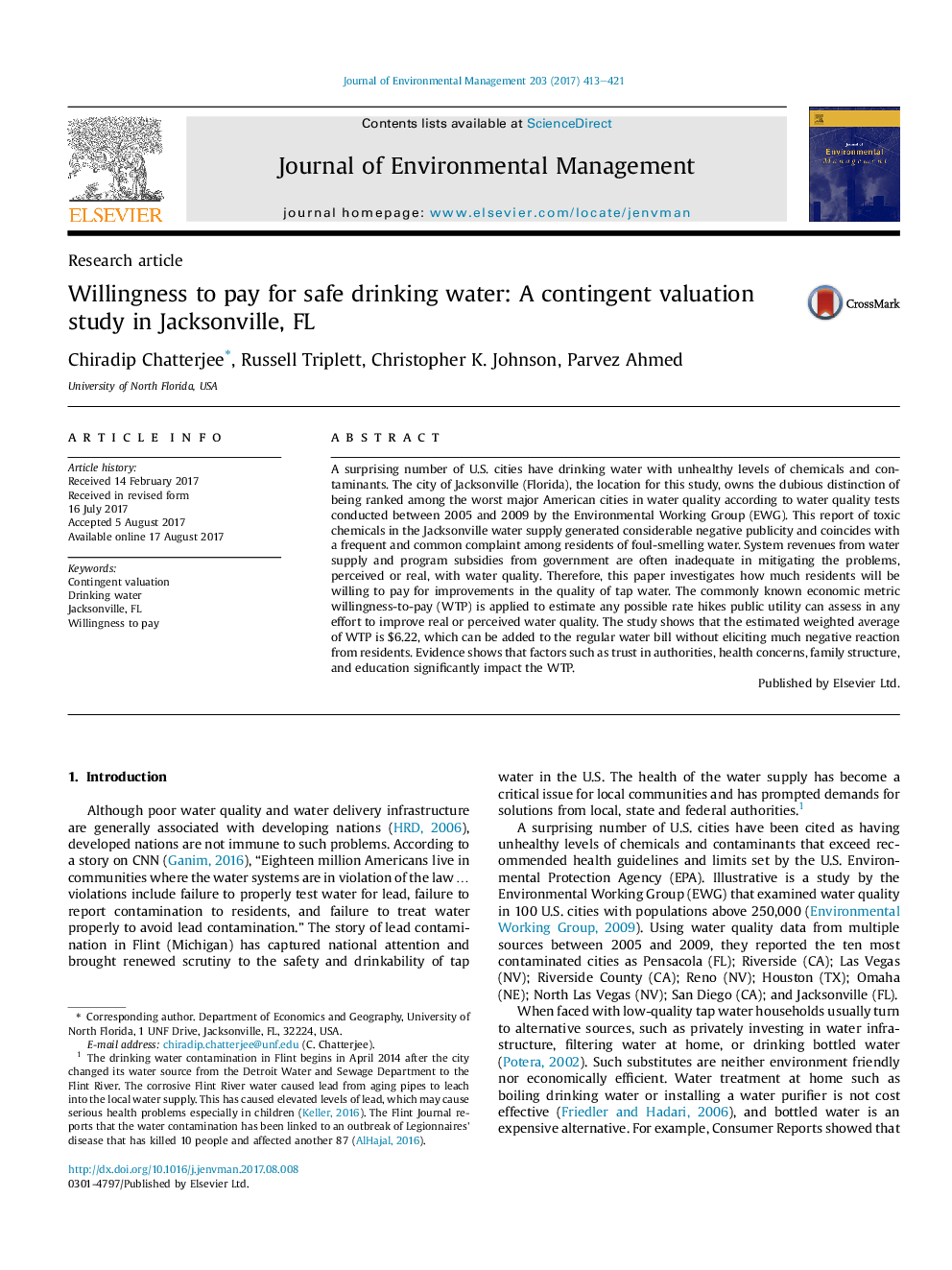| Article ID | Journal | Published Year | Pages | File Type |
|---|---|---|---|---|
| 5116527 | Journal of Environmental Management | 2017 | 9 Pages |
â¢The Environmental Working Group examined water quality in major American cities.â¢The water quality report ranked the city of Jacksonville (Florida) among the worst.â¢The primary supplier of tap water in Jacksonville denies the credibility of the report.â¢We investigate residents' willingness-to-pay (WTP) for tap water quality.â¢Determinants of WTP highlight whether quality concerns are genuine or deception.
A surprising number of U.S. cities have drinking water with unhealthy levels of chemicals and contaminants. The city of Jacksonville (Florida), the location for this study, owns the dubious distinction of being ranked among the worst major American cities in water quality according to water quality tests conducted between 2005 and 2009 by the Environmental Working Group (EWG). This report of toxic chemicals in the Jacksonville water supply generated considerable negative publicity and coincides with a frequent and common complaint among residents of foul-smelling water. System revenues from water supply and program subsidies from government are often inadequate in mitigating the problems, perceived or real, with water quality. Therefore, this paper investigates how much residents will be willing to pay for improvements in the quality of tap water. The commonly known economic metric willingness-to-pay (WTP) is applied to estimate any possible rate hikes public utility can assess in any effort to improve real or perceived water quality. The study shows that the estimated weighted average of WTP is $6.22, which can be added to the regular water bill without eliciting much negative reaction from residents. Evidence shows that factors such as trust in authorities, health concerns, family structure, and education significantly impact the WTP.
